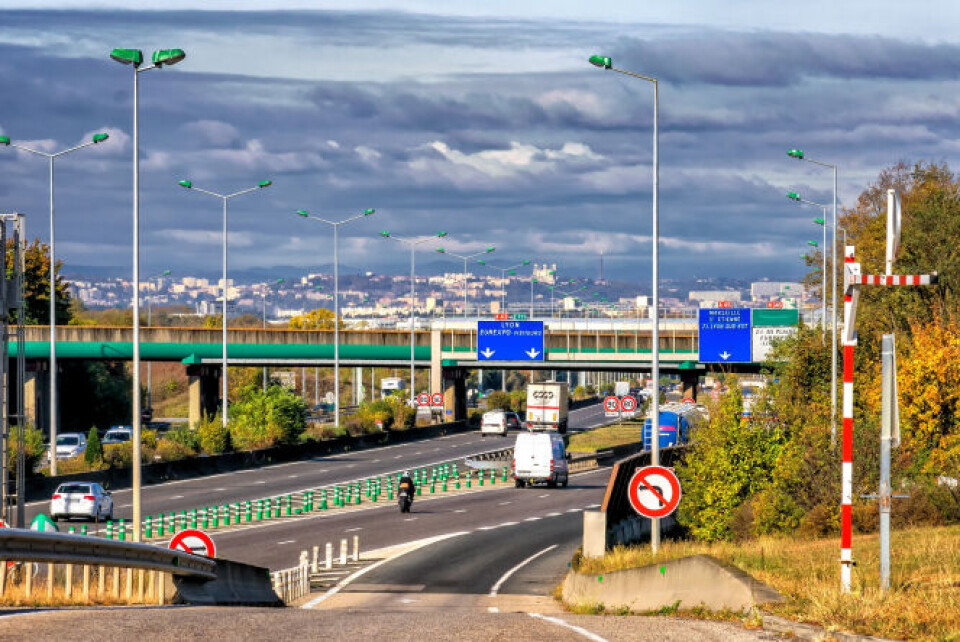-
Six good news stories from France in 2025
From revolutionary eye surgery and sporting successes, to successful fundraising for iconic French brands, the year was full of feel-good news
-
Why is New Year's Eve known as Réveillon de la Saint-Sylvestre in France?
You may have heard French friends use this term but they might not know where it comes from
-
French farmer protests: union calls for ‘mass restart’ of action
January 7 is highlighted as day for key action - other unions are yet to commit
Private unmarked speed camera cars to triple in France in 2021
The move is intended to free up police officers to ‘better use their skills’ in areas such as drink and drug driving detection

The number of unmarked speed detection cars operated by private companies is set to triple on roads in France this year, road authority la Sécurité routière has announced.
The number of vehicles is set to increase from 83 to 223 by the end of the year, it said in a press release on Thursday April 22.
Some of the unmarked, private vehicles used will be converted cars that are “currently in use by police or gendarmerie”, the authority said.
Private speed detection vehicles - unmarked cars with speed cameras inside that monitor drivers’ speed on the road and operated by private contractors - are already in operation in Normandy, Brittany, Pays-de-la-Loire and Centre-Val de Loire.
They will now being rolled out in four more regions: Grand-Est, Hauts-de-France, Bourgogne-Franche-Comté and Nouvelle-Aquitaine.
Checks in these regions are set to begin over April, May, and June of 2021.
La Sécurité routière said that authorities are increasingly choosing to outsource speed camera monitoring to private companies, to “free up and better use the skills and qualifications of law enforcement” in other areas, such as testing drivers suspected of driving under the influence of drink or drugs.
On average, the monthly number of drivers caught speeding by private speed detection cars is 322. However, speed detection cars still identify a relatively low percentage of offences compared to static cameras.
La Sécurité routière said: “The number of [speeding] tickets issued as a result of a violation detected by a speed detection car (whether private or not) represents 9.2% of all tickets issued as a result of speeding detected by a camera.”
Newspaper Le Parisien has predicted that judging by current trends, private speed detection cars will soon “spread everywhere in France, with 450 cars in total by 2023”.
La Sécurité routière was careful to point out that private speed detection companies are not paid by the number of offences they detect, and that drivers in the cars cannot manually fine drivers, nor influence the number of tickets that are issued. Speed detection is carried out automatically, it said.
Data collected by the cars is encrypted, and sent to police officers, who then validate and confirm the fines needed. The same process is used for fines issued by static speed cameras and speed detection vehicles operated by police.
The speed tolerance for onboard cameras, either private or police, is however more generous than for fixed cameras: 10kph higher than the limit allowed within speed zones up to 100kph or 10% above the limit after that. The tolerance limit for fixed cameras is 5kph and then 5%.
In 2019, €760 million came from fines linked to automated speed checks, from a total €1.65 billion collected that year in total (from both police checks and automated cameras). The total number of fines dropped that year by 3.3 % due to increased use of automated speed cameras, compared to 2018.
This article was updated on April 24 to clarify the different tolerance levels for onboard or fixed cameras.
Related stories
New French law will limit driving app warnings for police checks
French police arrest man riding electric scooter at 57kph
How can I stop cars speeding through my village in France?
























